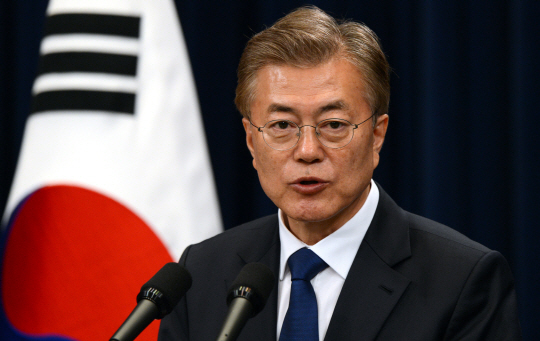The Korea Herald is publishing a series of articles delving into the economic policies and tasks expected of the new Moon Jae-in administration. This is the fourth installment -- Ed.
President Moon Jae-in is expected to encourage mergers and acquisitions, deregulate Internet of Things-related laws and abolish joint surety to boost startups.
There has been consensus among experts here that more decent jobs should be created from startups and small and medium-sized businesses to reduce excessive dependency on conglomerates dominating the gross domestic product in creating jobs and conjuring up new growth engines.
“The M&A market must be activated like that in the US. That would be the way for large companies to pay a proper price in buying startups, and for the startup companies to use the money to continue making new ideas,” Moon had said during an economic forum last month.
He was seemingly referring to cases of Silicon Valley tech giants, such as Facebook, Google, Apple and Intel, paying hefty sums to buy small startups.
Industry watchers expect the Korea Fair Trade Commission to be overhauled under the new administration, as Moon earlier had said he would expand its investigation authority to correct unfair business practices by large companies.
“In Korea, large companies don’t need to spend hefty sums of money because they can simply take startup’s technologies. Infringement of patents is relatively well tolerated here compared to the US, where hefty fines are imposed on such unfair practices by corporate watchdogs,” Park Tae-geun, public relations chief of the Korea Venture Business Association, told The Korea Herald.
 |
(Yonhap) |
Apart from M&A, experts have also been calling for deregulation of public data, which most startups need to provide new services based on artificial intelligence and big data technologies.
“Despite the growing potential of data use among startups, a lot of the data -- financial, education and health care -- are unable to be put on cloud servers by law under the pretext of security reasons,” said Lee Min-hwa, a professor at KAIST Business College and chairman of the Korea Creative Economy Research Network.
Lee said such strict laws make it difficult for startups -- mostly online firms -- to create new services. In Korea, data traffic on cloud environment out of total data traffic is 1.4 percent compared to the OECD average of 86 percent, Lee said citing the data by Cisco Systems and telecom operator KT.
Shin Sang-yeol, a chief of Ministry of Science, ICT and Future Planning’s software promotion division, pointed out, “Lee’s views on deregulation of cloud-related policies are generally right. Still, the general perception of personal information protection is too conservative in Korea to open all the public data radically.”
Apart from the technology-related laws, financial deregulation on startups are also expected to be made under Moon.
During his presidential campaign, Moon had pledged that he would completely abolish joint surety. Joint surety system refers to a unique policy in Korea placing the blame of company bankruptcy on its chief regardless of causes of the failures. As a result, failed CEOs often end up with huge debts.
Moon earlier had said, “In Silicon Valley, there is no case a company makes a success on the first attempt. They usually make a success after one or two failres. An eco-system should be made for an entrepreneur to make a new attempt even after failures.”
Last year, the government allowed its guarantee funds, including Korea Credit Guarantee Fund and Korea Technology Finance Corporation, not to require joint surety for companies established less than five years. The range of the companies is expected to be expanded under Moon’s administration.
“The abolition of joint surety has so far been opposed by financial authorities on the grounds of moral hazard. However, further abolition is expected under the new administration because the measure has made many failed entrepreneurs delinquent borrowers who are given no second chance,” said Lee Won-seob, Korea Federation of SMEs’ policy division.
By Shin Ji-hye (
shinjh@heraldcorp.com)








